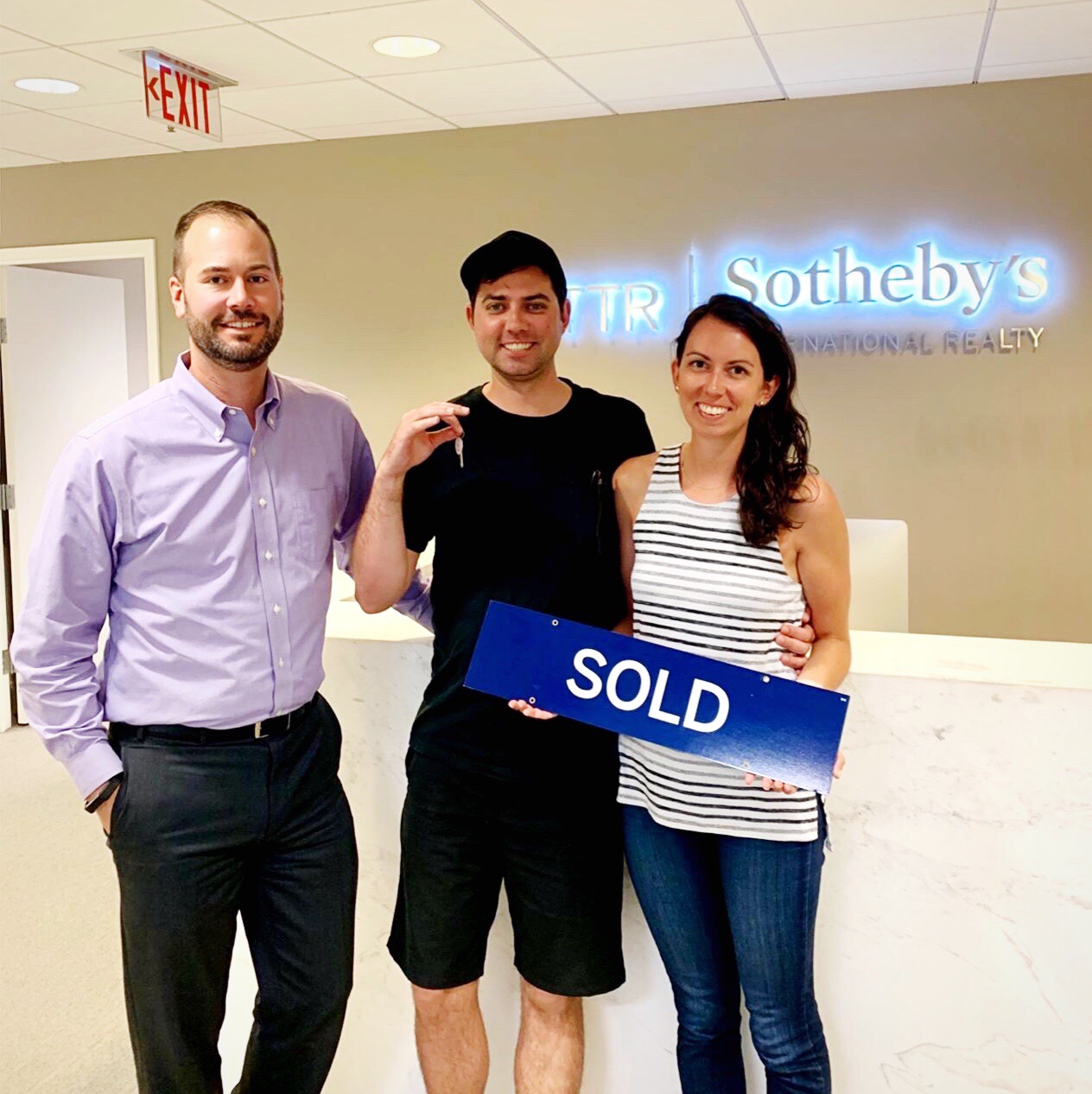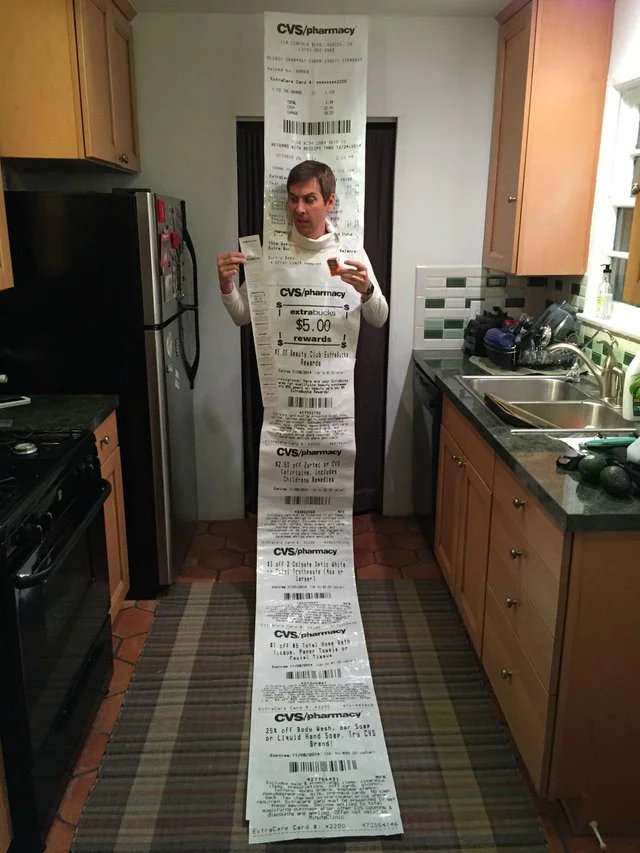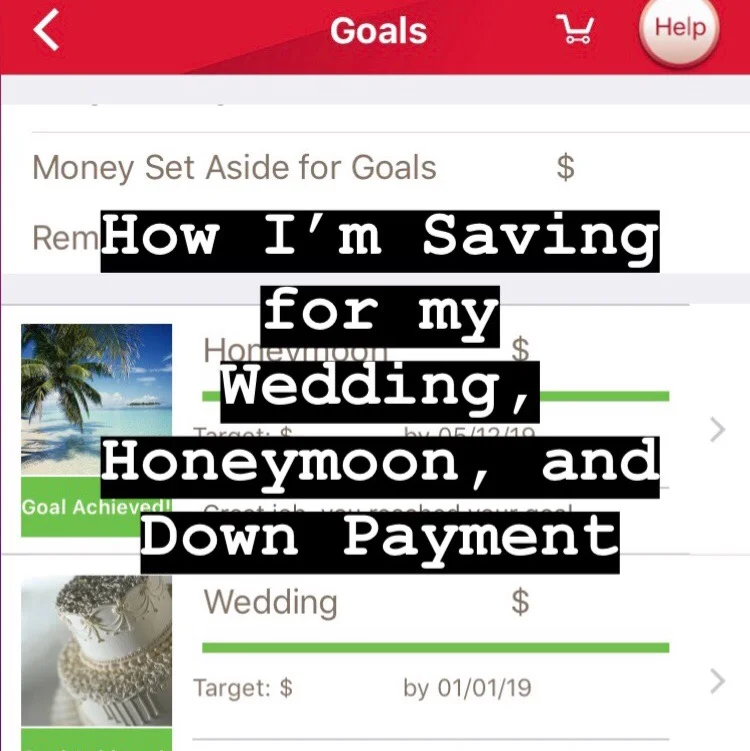How We Saved For Our First Home
As you might have seen on Instagram, Caleb and I recently closed on our first house! The home-buying process is crazy and stressful and the DC area market is objectively insane so we’re extra thankful that we were able to find a home we loved in a neighborhood and price point that worked for us in both the short and long-term.
Since buying a home is probably the biggest financial decision that you can make, I wanted to share a few key things that we did to save up for the down payment for our first home. Please know that I am in no way a financial expert and that everyone’s financial situation is different. I 100% recommend talking to someone as you navigate the process to get advice on your financial strategies — whether that be a formal financial advisor or an informal but experienced person you can turn to who you trust. (Thanks for everything, Dad!)
Also note - there is a LOT to know about the home-buying process and tips for everything from picking a realtor to finding the right neighborhood. I am going to focus solely on how we saved for our first home and leave the other tips to people who have purchased multiple homes with more experience.
1. Determine Your Priorities
Just because I just bought a house doesn’t mean you have to too. Figure out what your key life priorities are and then see how buying a house might fit into that. When Caleb and I first starting getting serious, our focus wasn’t on saving for a house — it was on paying off grad school and car loans so that we would be debt free by the time we got married. I know that is not an option for everyone, but figure out what your financial priorities are and start from there. If you want to prioritize going to school or paying off loans, do that.
2. Invest early and AUTOMATICALLY
One of the best things that I did seven years ago was enroll in my prior employer’s employee stock purchase plan. If you’re not familiar, a stock purchase plan typically allows employees of a company to purchase shares in the company at a slightly discounted price. When my company went public, I paid little attention to the program and only signed up because my manager and my father told me that it would be a good investment. I didn’t think much of it and signed up to have a tiny percentage of my monthly paycheck automatically go to the stock purchase plan. In the end, it made a HUGE impact on our down payment savings. So, if your employer offers a similar benefit and you have confidence in the company, definitely look into this.
In addition, when I knew that I wanted to get serious about saving for a house, I opened up some mutual funds with Vanguard. (They have tons of great ones, low fees, and support to help you decide which one is right for you.) These funds required an initial deposit, which I pulled from my savings, and then I set up automatic transfers each month from my savings account to continue to “feed” them. You can always change the amount of your automatic transfer so you could bump it up as you get more serious about saving.
The final automated step I took when I was getting serious about saving is that I automated transfers from my checking to my savings account. I figured out a threshold that I was comfortable with and then told my bank to move that amount to my savings account each time I got a paycheck. This way - I paid my bills AFTER I had already set aside money for savings (and it was always there to access if I didn’t budget right and things got hairy) so it was easier to keep that money on the saving side of the fence.
3. Use a High-Interest Savings Account
Once I was really focused on saving for a house and saw my savings account start to grow, I opened a high-interest savings account. I was strategic about opening one through Discover Bank and was able to open one when they were running a promotion where you got an additional amount of money if you deposited over a certain threshold. High-interest accounts are great because you’re basically getting your money to make more money for you than it might sitting in a more traditional bank.
As a quick demonstration — say you’ve saved $50,000 towards a down payment.
If you keep that money in a Bank of America Savings Account that earns a 0.03% APR, you’ll earn an extra $15/yr in interest.
If you keep that money in an Ally Online Savings Account that earns a 2.20% APR, you’ll earn an extra $1,100/yr in interest.
Do note that you will need to pay taxes at the end of the year on your interest income.
4. Focus Your Spending As You Get Close To Your Goal
Like most things, once you see your goal getting closer, it’s much easier to focus on it. As we started to get closer to reaching our down payment goal, it made it easier for us to focus our spending. We didn’t stop going out altogether this last year, but we definitely decreased the number of dinners out and would be mindful to not order drinks each meal out to save a little extra money. For me, in the last year, I stopped getting mani/pedis as my simple way of shifting my spending priorities. It gave me a sense of control and that I was working towards something each time I walked by my favorite nail salon and opted to do my own nails in front of the TV instead. I’d say find whatever little luxury you might be able to put on pause for a few months and channel that money and that saving energy towards your house!
5. Figure Out Your Numbers!
Once you’re ready to start looking at houses, home buying gets tricky and there are countless resources on how to navigate interest rates, down payment amounts, mortgage points, etc. so I’ll leave it those experts. What I want to focus on here is how we evaluated home prices based on two key numbers.
When Caleb and I were looking at houses, there were two numbers we focused on:
Monthly Payment. This number was first and foremost the easiest to understand. It factored in mortgage payments, insurance, taxes, and HOA payments and was an easy number to compare to our current monthly rent to give us perspective. The monthly payment number quickly showed us how much money we would need to come up with monthly and, for us, quickly highlighted that condos with $500+/month condo fees were not the right fit.
Total Assets After Closing (=Total Assets - Down Payment - Closing Costs). When you’re looking at lots of houses and about to make a huge financial decision, sometimes it can be hard to discern the impact that spending $5,000 more on a house will have to your financial bottom line. The way I was able to wrap my head around this was by creating a spreadsheet with all of our assets. On the spreadsheet I had a field for home price, down payment %, and estimated closing costs. After I plugged in those numbers, my spreadsheet would tell me my total costs at closing and how much money I’d have in the bank after closing. After a couple of late night freak outs, we realized that in order for us to feel comfortable making this financial decision, we needed to have a number that our bank account couldn’t dip below in order for us to feel secure. (I can’t tell you how many times I told Caleb and our realtor “This house looks good but I need to go home and talk to my spreadsheet about it first.”)
Note - a good lender will supply these numbers for you and should also be able to show you different down payment and monthly payment options given different down payment percentages, interest rates, etc. Never feel bad about asking lenders for this — if you go with them, you’ll be paying them SO much in interest each month so they’re there to help you!
The End!
That’s the story of our saving and home-buying journey. As I said, everyone’s financial situation is different, and I would note that we are so grateful that my parents also helped us with our final down payment. At the end of the day, the most important thing is to understand your priorities and communicate them to whoever you’re making decisions with — be that your partner, parents, or realtor. This is an enormous financial decision so it’s super important to ask questions, understand your limitations, and be comfortable in your decision.
Resources
As mentioned, there are tons of great resources out there about savings, personal finance, and home-buying specifically. A few that I like are:
Money Circle - led by Finance Coach Maggie Germano, this Facebook group has been a great resource to ask quick questions and learn new money-saving tips
The Hell Yeah Group - I really enjoy Paco’s weekly newsletter related to all things finance. While it’s catered towards freelancers, she pulls tons of great content. Particularly love this great breakdown of investment terms and lessons.
Wealth Over Now - Keina is a finance coach and I love following her Instagram for daily reminders about how to be smart about spending and investing.
Thanks to our realtor Joe for his help with everything!






